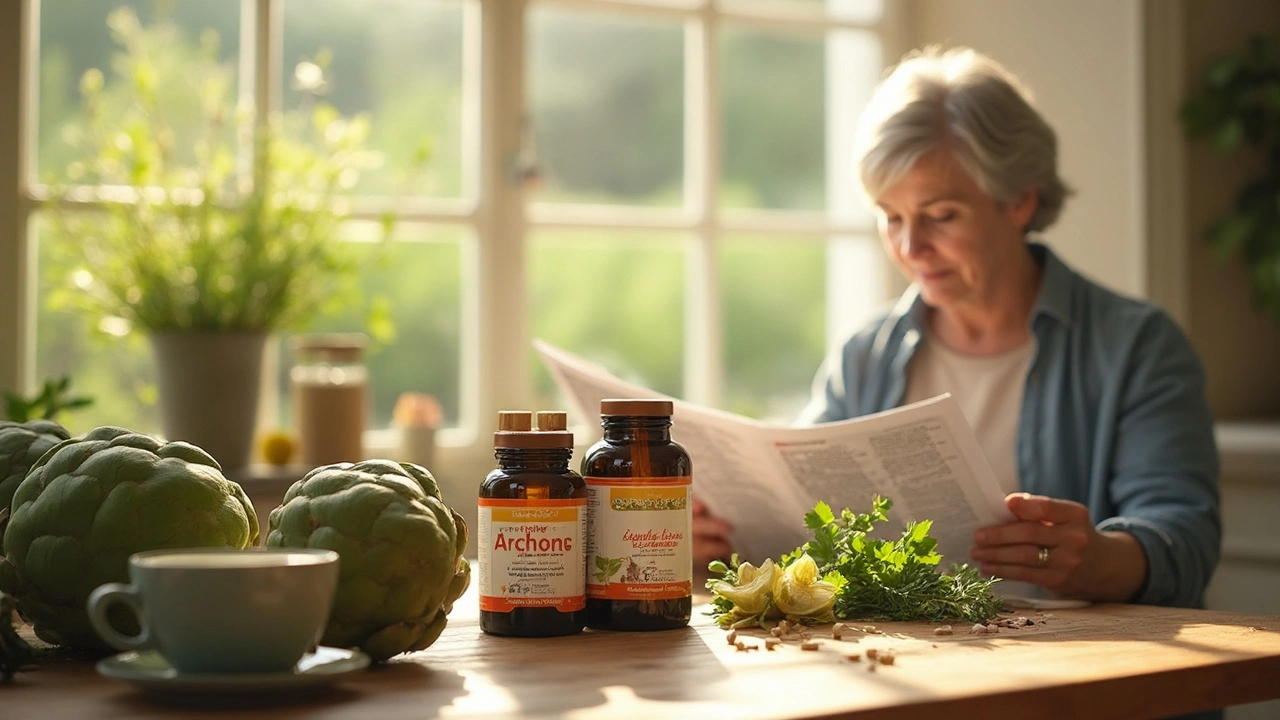Liver Health: Practical Tips to Protect Your Liver
Your liver does a lot: it cleans your blood, stores energy, and helps digest food. Little problems can grow fast, so a few straightforward habits go a long way. Read these practical steps you can start today and simple signs that mean you should see a doctor.
What commonly harms the liver
Alcohol is a top cause of liver damage. Regular heavy drinking slowly injures liver cells. Over-the-counter painkillers matter too — high doses of acetaminophen can wreck the liver. Some prescription drugs and supplements can also cause trouble; for example, certain antifungals and herbal products have been linked to liver tests rising. Nonalcoholic fatty liver disease (NAFLD) is very common and ties to weight, blood sugar, and cholesterol. Viral hepatitis (A, B, C) still affects many people worldwide and needs specific treatment.
Everyday steps that help right away
Cut back on alcohol. Even a small reduction lowers stress on the liver. Use the lowest effective dose of pain medicine and avoid mixing acetaminophen with alcohol. Check medicine labels and ask your pharmacist about liver risks when starting any new drug or supplement. Eat more vegetables, whole grains, lean protein, and healthy fats like olive oil. Losing even 5–10% of body weight can shrink liver fat in people with NAFLD.
Move daily. Aim for 30 minutes of moderate activity most days — brisk walking, cycling, or swimming. Exercise improves insulin sensitivity and helps burn liver fat. Get vaccinated for hepatitis A and B if you haven’t already. Practice safe sex and avoid sharing needles to lower hepatitis C risk. If you drink or use injectable drugs, talk to a clinician about testing and treatment options.
Watch supplements closely. Herbal remedies aren’t always safe—some can raise liver enzymes or cause injury. If a product promises quick weight loss or huge energy boosts, be skeptical and check with your doctor. Even popular supplements like high-dose vitamin A or kava have been associated with liver harm in case reports.
Get simple, useful tests. A basic liver panel (ALT, AST, alkaline phosphatase, bilirubin) flags many problems early. If results are odd, your clinician may order an ultrasound or elastography to check for fat and scarring. For people with risk factors—diabetes, obesity, heavy drinking, or long-term medicine use—regular monitoring makes sense.
Know when to seek help. See a doctor if you have unexplained fatigue, yellowing of skin or eyes, dark urine, pale stools, persistent stomach pain, or swelling in the legs or belly. Those signs can indicate a serious issue that needs prompt attention.
Small changes add up. Cut risky habits, eat better, move more, and check medicines with a pro. Your liver recovers well when you catch problems early and act. If you’re unsure about a drug, supplement, or test, ask a clinician — it’s the fastest way to protect your liver for years to come.
Artichoke Supplements: Transform Your Health with Science-Backed Benefits
Artichoke supplements pack hidden health powers—way beyond the dinner table. They can boost liver function, lower cholesterol, and improve digestion. This article covers the surprising science behind artichoke extracts, what to look for in a supplement, and practical tips to get the most out of them. We’ll look at what works, what’s hype, and who should skip them. Real advice, no fluff.
View more
